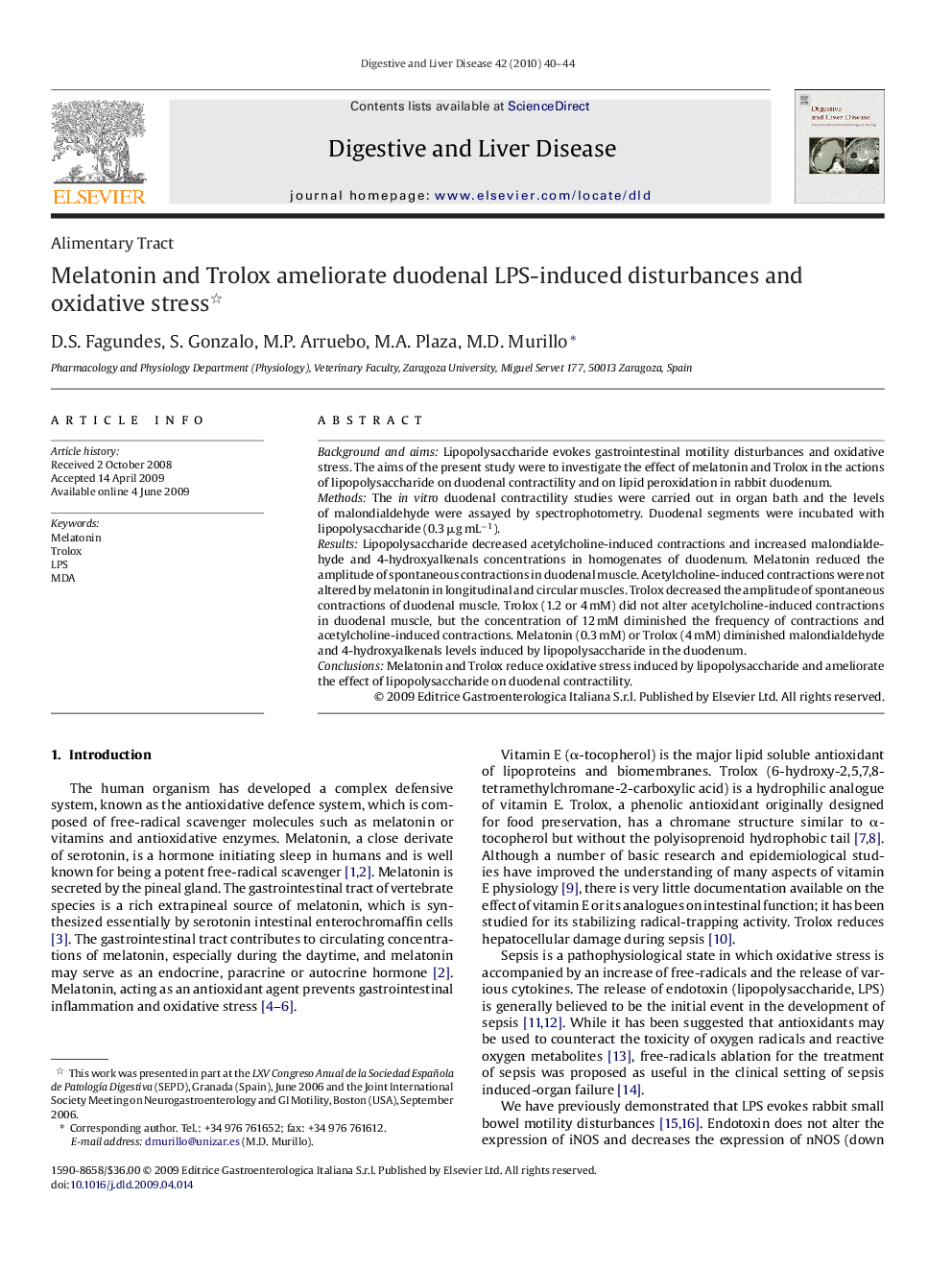| Article ID | Journal | Published Year | Pages | File Type |
|---|---|---|---|---|
| 3265207 | Digestive and Liver Disease | 2010 | 5 Pages |
Background and aimsLipopolysaccharide evokes gastrointestinal motility disturbances and oxidative stress. The aims of the present study were to investigate the effect of melatonin and Trolox in the actions of lipopolysaccharide on duodenal contractility and on lipid peroxidation in rabbit duodenum.MethodsThe in vitro duodenal contractility studies were carried out in organ bath and the levels of malondialdehyde were assayed by spectrophotometry. Duodenal segments were incubated with lipopolysaccharide (0.3 μg mL−1).ResultsLipopolysaccharide decreased acetylcholine-induced contractions and increased malondialdehyde and 4-hydroxyalkenals concentrations in homogenates of duodenum. Melatonin reduced the amplitude of spontaneous contractions in duodenal muscle. Acetylcholine-induced contractions were not altered by melatonin in longitudinal and circular muscles. Trolox decreased the amplitude of spontaneous contractions of duodenal muscle. Trolox (1.2 or 4 mM) did not alter acetylcholine-induced contractions in duodenal muscle, but the concentration of 12 mM diminished the frequency of contractions and acetylcholine-induced contractions. Melatonin (0.3 mM) or Trolox (4 mM) diminished malondialdehyde and 4-hydroxyalkenals levels induced by lipopolysaccharide in the duodenum.ConclusionsMelatonin and Trolox reduce oxidative stress induced by lipopolysaccharide and ameliorate the effect of lipopolysaccharide on duodenal contractility.
